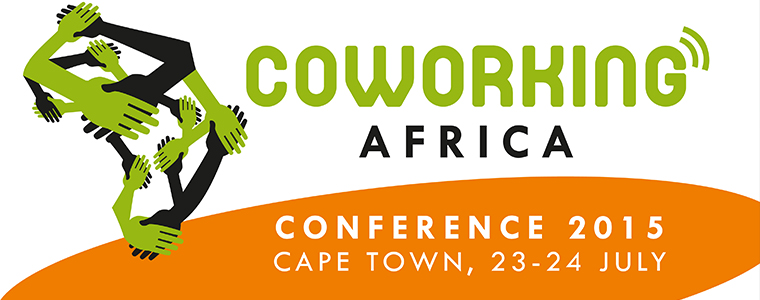Coworking Africa conference

by Melissa Mesku
Until now Africa has been considered a small player in the coworking movement. Now, major demographic shifts and a handful of booming tech scenes are creating ideal conditions for the rise of coworking in Africa. A growing number of people across Africa are looking for flexible workspace, from entrepreneurs and independent tech professionals, to teachers and development workers.
Over 100 coworking spaces, tech hubs, business incubators and startup accelerators have opened in Africa in the last two years. Universities, businesses and development agencies are starting to make use of these new spaces.
With the growth of the flexible workspace industry comes Africa’s first conference devoted to the topic. The Coworking Africa conference will be held in Cape Town, South Africa on July 23-24 at Cape Town Office, Cape Town Garage, OPEN and The Design Bank. Cape Town is regarded as the capital of coworking in Africa with more than 25 spaces, many of which will be participating.
Jean-Yves Huwart, a coworking space operator who started the Coworking Europe conference five years ago, is organizing the Coworking Africa conference.
“Nowhere else in the world is the development of coworking communities as important as it is in Africa. With the youngest and fastest growing demography on the globe, it’s critical for Africa to integrate millions of young professionals into the digital world economy. By providing a shared, connected infrastructure, collective learning opportunities and access to communities of peers, the development of coworking can support Africa for this challenge,” Huwart told us.
Proponents contend that coworking is crucial in Africa because it supports a growing middle class of digital workers, freelancers and entrepreneurs. “Coworking spaces are becoming the bedrock of local ecosystems of entrepreneurs shaping the future of modern, digital friendly, tech-savvy economies,” said Huwart.
The coworking situation in Africa is similar to what it was in the U.S. or Europe in 2009, the conference’s project manager Vanessa Sans told us. “Some pioneers bootstrapped a first space in a country, bringing the first coworking experience and drawing an early community,” said Sans. Those early spaces were instrumental in developing the coworking movement in countries where it is now booming, like Egypt, Kenya and Nigeria.
In Europe and the U.S., much of what coworking has to offer is the intangible — camaraderie and social connections that improve work-life balance and increase business opportunities. But in many parts of Africa, entrepreneurs may face insurmountable difficulties with cost, infrastructure or basic security. The view is that coworking can help make it easier for companies to get started.
“An important problem in Africa is that people have to deal with infrastructure issues such as security and power outages,” said Sans. MTechHub, a coworking space in Kinshasa, is set to lead this conversation at the conference.
Coworking spaces offer connectivity, a concentration of digital resources, and a proper work infrastructure where there may otherwise be none. They also have to strive to keep costs low. Many African cities’ real estate prices are out of step with the local economy, making office space difficult to afford for the majority of the population.
Inflated real estate pricing is an issue that will be addressed at the conference by CoWork Lab Mozambique, a chain with multiple locations in Mozambique and Portugal. “The discussion will focus on the ways coworking can empower African entrepreneurs and SMEs in a context of poverty and most of the time over-priced local real estate,” said Sans.
Despite the differences in context that may separate coworking spaces in disparate countries across Africa, they share the same ethos with spaces around the globe. “Building a network of trust and knowledge-sharing between coworking communities benefits all the players, as has been demonstrated in Europe (Coworking Europe) and in North America (GCUC) the last five years. Thanks to the coworking conferences, thousands of coworking spaces’ communities around the world are in touch with one another,” Huwart said.
The conference will be attended by a wide range of spaces like iHub in Nairobi, The Office in Rwanda and The District in Cairo. Multi-location coworking brands like CoWork Lab will also be in attendance, including OPEN in Cape Town and Johannesburg; Impact Hub with its eight locations in Africa; and Jokkolabs, which has spaces in Burkina Faso, France, Mali and Senegal.
For more information, visit the Coworking Africa website at www.coworkingafrica.com.
No comments yet.